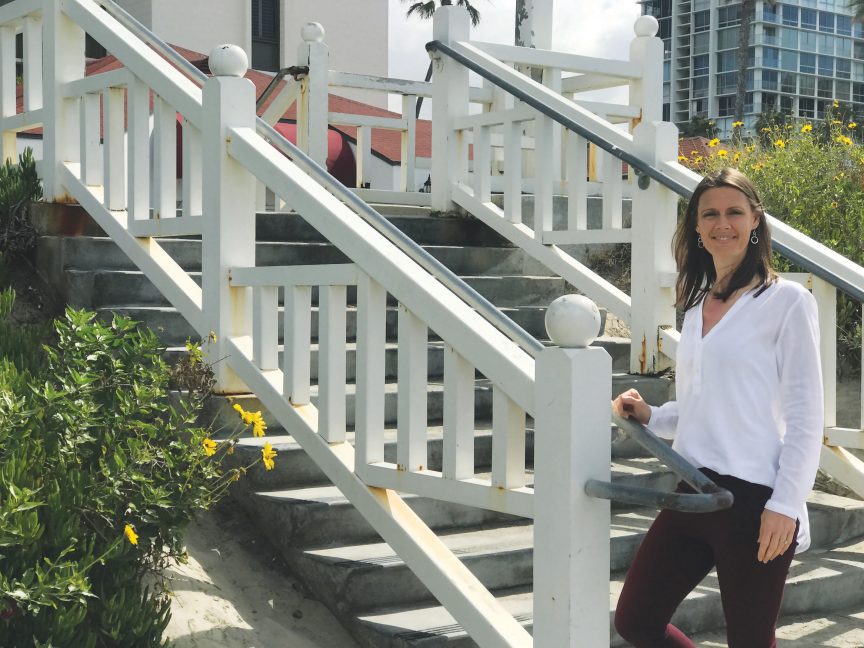Life happens. Some life circumstances we think are tragic truly are a blessing in disguise, rich in learning and rewards. Fifteen years ago, my life turned upside down. I woke up one morning full of dreams and eager to begin an exciting career. I recently had earned my bachelor’s degree summa cum laude with a New York City internship under my belt, and I was ready to take on the world. My trip back home to Louisiana was supposed to be temporary as I searched for competitive employment in a larger metropolitan area. Then, life happened.
In June 2004, I was a passenger in a vehicle that hydroplaned going full speed on Highway 71. All vehicle passengers were ejected, and I landed on the highway. I was transported to LSU Health Sciences Center where I received top-notch treatment at the Level I Trauma Center. The crash shook me up pretty badly and caused quite a few internal injuries. I had multiple surgeries, was coma induced, and diagnosed with a severe traumatic brain injury (TBI). Before this event, I had never heard of a TBI, and it is just as scary as it sounds.
From patient to professional
Like any injury, recovery is possible. As a 21-year-old patient, I had to re-learn to walk, brush my teeth, and comprehend simple sentences. I participated in inpatient and outpatient rehabilitation programs at LifeCare and Willis-Knighton hospitals. Physical, occupational, and speech therapists worked to help me reconnect and grow new neural pathways, and ultimately to rewire my brain. As I began to recall my lifelong interest in health and wellness, I resumed my paleo-like eating preferences from my earlier years when I was a distance runner. I feel like diet and physical activity played an important role in my recovery.
After a couple years of rest and rehabilitation, I began to feel more like my old self. I became successfully employed in the local healthcare industry. I took night classes and got my MBA. I was in leadership positions for several social and professional organizations. I was honored with a Greater Shreveport Chamber of Commerce 40 Under 40 award in 2009. Thanks to my healthy lifestyle and neuroplasticity, all cylinders were firing and cognitive deficits from the TBI were not permanent. As an adult with prior knowledge, I can look back and observe the process of recovery as I regained more complex thinking abilities.
From tragedy to triumph
A few years later, a perfect storm of events that included remarkable job stress, little sleep, an unhealthy diet, and more tore up my gut and dysregulated my biological systems. I began to suffer chronic fatigue, migraines, and brain fog. I was confused. My TBI recovery had gone so well, and I was a well-educated, successful professional. Why was my brain acting weird again?
I got scared, but I was relieved to find functional medicine and learn that most people face some degree of cognitive impairment now and then. Our lives are very stressful as we juggle school, children, finances, and trying to get that promotion. Conveniences of the 21st century result in our sedentary lifestyles, and we often rely on food that is quick but non-nutritious, filled with unnatural ingredients that our bodies cannot metabolize. This can be a dangerous combination that leads to all kinds of chronic inflammatory conditions. Thanks to functional medicine, these conditions may not have to be permanent.
Following my research of credible sources and evidence-based solutions, I made some lifestyle changes. I returned to more ancestral eating habits, spent more time outdoors, purposefully practiced prayer and mindfulness, and engaged in more thought-provoking activities. Once again, I saw my physical health rebound and my cognitive health restored, so much so that I am training to become a certified functional medicine health coach. I have a special interest in collaborating with clients and their licensed practitioners to help people reclaim their cognitive health.
I have deep experience and reason to be passionate about brain health. On more than one occasion, I personally witnessed how cognitive health is dependent on a combination of factors that include diet, exercise, stress management, adequate sleep, and brain stimulation. Not too many years ago, theory held that the brain is a physiologically static organ; that we are born with a fixed intelligence and injury to the brain permanently damages cognitive abilities. We know today that is just not the case.
Neuroplasticity is a complex concept that explores how everyone’s brain changes throughout life. Much like we go to the gym for strength training, or we train for a long-distance run, we have to exercise our brains. Brain training in some fashion can be part of the solution to create or restore cognitive function, as long as you put in the work. If you don’t use it, you lose it.
Today I help people work toward stronger cognitive health as a brain trainer at LearningRx Shreveport-Bossier. I enjoy seeing clients of all ages strengthen their skills so they can better reason and articulate, and improve reading, calculation, and social skills. Brain skills that can be strengthened include focus, processing speed, comprehension, memory, and logic and reasoning. Improved cognition results in increased confidence and changes people’s lives for the better. One of my favorite success stories is hearing of a young adult who worked with a different trainer say his brain is now “a human calculator!”
Donesa Walker, owner of the local LearningRx, is a qualified educator with decades of success. She is passionate about training people’s brains so they can function independently. If you, your child, or your employees struggle with memory recall, social interaction, judgment, or trouble reading and writing, please call LearningRx to set up a consultation with Donesa. She is an expert in learning abilities, and she can help you find the best training program for your personal needs. Chronic conditions require long-term, personalized care and patience for every individual. LearningRx trainers are here to help your mind grow!








